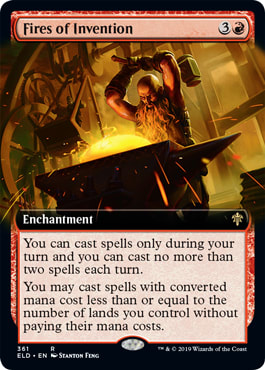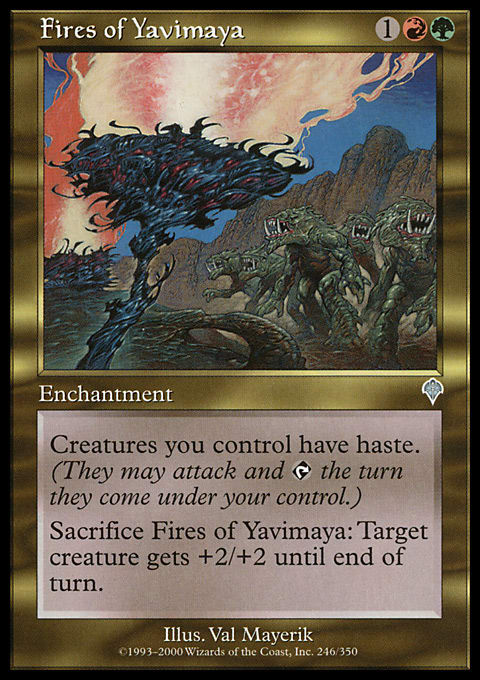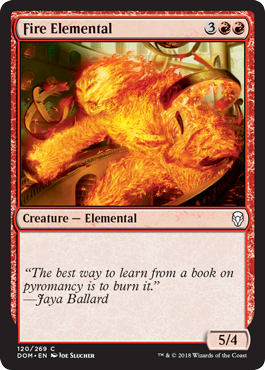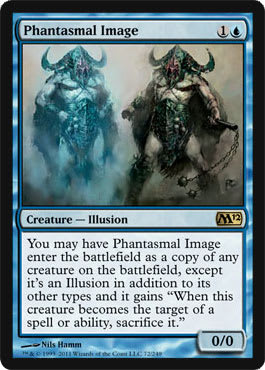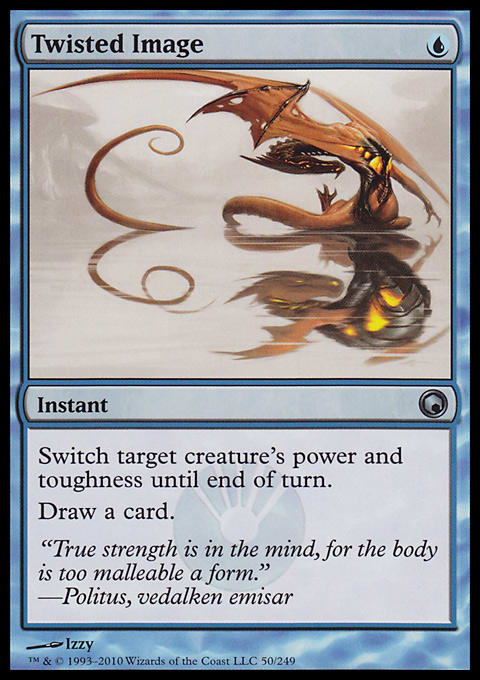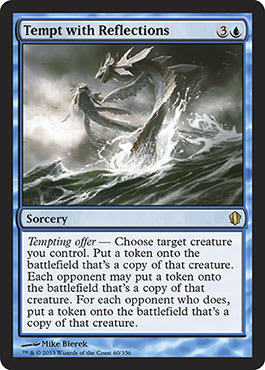How badly do you want to win? How much do you want to be the best?
Would you...
Lie to yourself?
Would you...
Lie to others? Make them feel bad?
Would you keep lying to yourself if you knew how bad it made others feel?
Nike and impatient parents say "Just Do It." Gatorade and men who have trouble maintaining arousal say, "Is It In You?"
Among the character archetypes available anywhere, one of the ones I relate to the absolute least is the try-hard that sacrifices maturity or integrity for the sake of a self-indulgent competitive instinct. You know what I'm talking about: the kind of person that enforces ball taps on putt putt golf courses and monitors the toe line in bumper bowling at a birthday party.
Sticklers for the rules. Ceaseless arbiters of justice nobody needs.
Think about high school football coaches, aviators on, taking themselves all seriously, screaming at kids a third of their age. Think about Magic Prereleases where a child who never plays tournament Magic is getting a lecture they didn't sign up for by some ego hurt bozo hellbent on ex-plaining exactly why they lost and why that makes them better at the game, counterintuitively, from the small sample size of one match.
I've seen it. Have you?
It's a hard thing to witness.
Okay, so yeah, some people get too competitive and forget themselves, and the context of the game that's taking place is really important (compare the mindsets players might have in the finals of a huge event as op-posed to a casual "kitchen table" style game), but if you're going for the top of the Magic mountain to really test yourself and your ability, then you'd best have:
Drumroll...
The Fire!!
"The Fire," if you're new to Magic tournament culture, is a shorthand proper noun sort of idea for the passionate competitive impetus that players feel now and again. It may wax and wane, but in general, if someone is talking about having "The Fire," it means they really want to play lots of Magic so they can get really good at Magic and then be successful at Magic in some way that validates themselves in a competitive structure built around Magic cards.
So common is this idea of the benefits of "The Fire" that in several years of copy editing Magic content full-time I don't think I ever went a full month or so without seeing it men-tioned somewhere when referring to either one's own feelings on competitive Magic mo-tivation or the observed newly acquired "Fire" of another; perhaps a teammate, perhaps a complete stranger that just seems to be able to win a lot of late. Either way, they've got "The Fire."
"I'm not feeling The Fire right now. I think I need a break." "Player X clearly has The Fire this year; they flew to Dallas early just to grind local events before the weekend."
My debut Magic article (I'll spare you a link; I'm sure it's long obsolete) contains a strong suggestion that passionate emotions are the enemy of Magic success. In a physically competitive endeavor, like Soccer, war, or forcing yourself to sit through a Roland Emmerich movie, having your adrenaline going is a productive process; however, if you're playing a complex card game and doing percentage math for a year's salary in three games, you're probably better off with keeping your mind nice and zen.
But let's forget the games themselves, just for a second, where "The Fire" may douse your chances of seeing a winning line clearly or keeping up with a full game state. "The Fire" is still a good, confident feeling that can motivate you to prepare by play-testing more often, to read more content and theory (mostly from Danny West on CoolStuffInc, PLUG), and to allow you to make long road trips in the name of living up to your maxi-mum dream scenario potential at Magic. "The Fire" burns eternal in one of us or another. Long may it scorch in event halls and in online queues. Bonfire lit. Whatever.
The more you put in, one way or another, the more you're going to get out. It's a reasonable generalization to follow, and it's no surprise so many champions of the world have this mental model.
Want it more. Do the work. Kick the ass of life like the beast you are.
Trademark Danny West 180 spin move in three, two...
"The Fire" Probably Isn't Doing You Any Good and It's Even Worse for Everyone Else
Record scratch.
The world is full of faulty ideas that would be mostly benign on their own, living in secluded, inconsequential little social pockets until they go away in favor of better, more useful ideas; however, if such an incorrect idea gains traction, there's really no telling how "inbred" a scene can become, warping our Magic hive mind around ideas that are as widely accepted as they are wrong. Of course, it doesn't do the same damage as anti-vaccination stuff or whatever this mask cartoon has been, but the process is the same.
Since Magic players read Magic articles to correct Magic errors, let's work on this error here and now, regardless of how much of a "problem" it really is relative to the Jackson Pollock painting of our current collective human experience. It's going to connect to bigger problems in a bit anyway. Future readers, hello from the Wastelands of 2020!
Read on to reveal why you should put out "The Fire," forever and always.
Why "The Fire" Is Bad For You, the Individual Player
Let's have a quick look at some universality tendencies. That's fancyspeak for "patterns and science."
According to The Yerkes-Dodson Law, there comes a point where the harder you try, the worse you get. Your performance falls, and the net result is you both sucking at whatever you're doing and being an aggressive, delu-sional tryhard. Now, that is humiliating.
So how do you know when you've swum out past the buoys and into counterproductive oceans for which you will assuredly drown in your own blind, flailing efforts? How do you know when you've gone too far and you're now hurting your chances at success? How do you know when it isn't just stress, it's a panic attack? How do you know when your dependency has become an addiction? How do you define the line between productively interested and destructively obsessive?
Man, I don't know! What am I, Billiam Nye over here with gadgets and do dads?
It's really hard to apply this effect when you're in the first person perspective of your own life at a given point. The best you can do is try to keep yourself in a healthy check. You know, be the player that gets good sleep rather than getting an extra three hours of play-testing overnight. Be the player that has a drink to relax in-stead of six drinks to pass out.
Either way, the fact you can't see it very well from your own world camera doesn't change the fact that you can empirically point to it on any kind of credible graph you care to find. Our intuitions suck. This is a real phenomenon and should be considered when you're in-stantiating Magic goals in your Mind's Eye.
Have outside perspectives to error correct: Explore positions that aren't your default, keep your friends ac-countable to reality and vice versa, and above all else, be uncomfortable a time or two a day. Grow.
Fortunately, there's a much better reason for not falling into "The Fire," and it has to do with the newfound maximum access to streamlined communication we have in the form of current media platforms: It is really, really easy to throw bad ideas into the world at nearly zero upfront cost right now, which brings us to the more important reason you should get rid of most of this "Fire" idea:
Why The Fire is Bad for Everyone Else
Bad information spreads quickly these days, and "The Fire" is terrible, terrible information.
It was very pleasing a few years back to see a subset of Magic content creators sometimes push the accurate narrative that any given player isn't terribly important to a tournament. We have this inter-nal feeling that the event is about us and we act and play on those instincts, but obviously, that's never true. Even in the very few instances you are the person that gets to win that event, there are way more people who did not.
A huge component of the idea of "The Fire" has to do with the illusion of complete self agency. It's a combi-nation of Control Intuition and Meritocracy Intuition applied in heavy doses to ourselves. A tournament's entire aura is a narrative about our own experiences; the tournament was about us because everything is about us. The issue is that that's never once true in any sense except exactly where you've been standing, breathing, playing, and tilting. To everyone else it's different. And all of these glory hopes and hoop dreams are incompatible; only one person gets to win and get the nar-rative pretty much everyone showed up with to make real.
And that's awesome because it's fun! These experiences are fundamentally great on their own. All of this is something people miss right now, probably more than ever because of how isolated we are. It is fun to play Magic and be competitive and connect with friends. It is fun to challenge ourselves to puzzles and live inside a day or weekend's journey through various Magic games and to meet new people.
Where it becomes an issue is when someone buys into their own version of the Magic experience so hard they forget it's only theirs. It becomes even worse when the very small top end of experiences are allowed to project and dictate the cultural reality toward the huge majority of lesser experiences, regardless of whether or not it's a more informed and representative viewpoint.
Take a look at the Magic Pro Tour Hall of Fame. It is overwhelmingly represented by only a few nations. Does anyone seriously think that these countries are "just better" at complex card games than the rest of the Earth in any kind of purist way? Does anyone honestly think Black players are inherently less good at the game than any other arbitrary grouping? And yet, if you want to be in the Pro Tour Hall of Fame, an endeavor that's already very difficult and requires a lot of circumstantial fortune, you almost necessarily need to be non-Black. It's possible you'd be helped by being a member of the Ruel family or by being a West Coast United States fantasy game developer, but Blackness assuredly will not help. Does it really matter what the corporate policies are and what calculated stuff comes out of the robot mouths of press re-leases when you can see more accurate realities by paying any amount of attention to how things actually shake out?
And as sad as it is, here we are at the ugly heart of the matter. We're living in a moment right now where it's important, for the sake of positive change, to look at many systemic patterns in our frameworks, because when you act all obstinate toward reality, people get hurt; and when you look at these greater patterns the implications are pretty simple: Your feeling that you can do anything, change everything, be anything anytime you want is just that. It's a feeling. "The Fire" is a fairy tale Magic players tell themselves because they want the comfort of maximum agency; they don't like feeling like their tournaments (or their lives) are almost entirely composed of elements for which they pay no mind and have no control over. Never mind that the game's history is packed with players winning with a completely borrowed deck or at a tourna-ment they barely cared enough to play in.
If the stereotype of the angry noob player screwing up and blaming everything else but themselves is the baseline, then Control Intuition is the overcorrection. It's the refusal to accept the obvious reality that Magic is a card game that shows its players constantly limited agency, both within games and within tournaments. To be told otherwise is nonsense; it's a beach in a television commercial.
While there is tremendous merit in discerning which things you can directly get the most causal investment out of and which things are most worth your direct input and attention, putting off the attitude that because you wanted it more than everyone else, especially at an endeavor with as much outright luck involvement as Magic, especially from perched atop a wildly inclusive upper crust, is asinine. It doesn't make for a compelling brand, it doesn't do a ton for pie in the sky esports marketing, but it's the truth: Magic isn't nor has it ever been any kind of reliable meritocracy. Just a cursory glance at the criteria for the Magic Hall of Fame shows where that part of the game's culture has been so far.
Determination
You have to look at greater patterns. Our instincts are not enough. Under a lot of life noise, there are greater patterns. Rejecting these to appease our most reflexive intuitions is a huge and harmful mistake. Everyone does it. Absolutely no one is immune. Reactions happen. So what?
Suppose you could see a pattern in your life. Heavy. Obvious. Under your nose, there's this new pattern you never noticed that changes everything. Lifting you out of your former self, your crappy first draft of a person, it sets you down somewhere you can see much better. Do you think this pattern is new just because you're only now paying attention? Because you're only now seeing these things, that they just now popped into existence?
Everyone has to let go of the comfort of agency. Because even as you read these words, you have less agen-cy than you think you do. Under your nose again, it's right here, in the room with you. Regardless of how great your tournament went, the number of invisible factors that went into your experience of it was basical-ly infinite, win or lose. Needless to say, this doesn't go very well with the purist version of "The Fire." I'm not out to discourage people from using it as a descriptor of passion or shorthand for well-known feelings. Not in the least. Going forward, though, I think we can safely step back from the aspects of it that point to complete autonomy and independent agency as they pertain to old world Magic successes.
The Fire Done Right
Tournament culture is going to continue to warp around digital offerings and pandemics for the foreseeable future, but as long as competitive Magic is there, The Fire will exist in the belly of players that want to get to the top of whatever its most competitive levels are. And that's fantastic. But it should be in a healthy way and it should be kept in healthy perspective. Acting like others can control circumstances that they can't is fundamentally damaging. Potentially worse, it's inaccurate in a self-righteous way.
The Fire should be used as what it is: a tool for developing better focus for yourself, for designing journeys for yourself through goals, for motivating the growth of relationships and connections that contextualize you and your experiences, and for guiding the smaller decisions that surround your larger attempts to tame the Magic Multiverse by your own standards. What it should not be is a delusion that tells you the harder you try the more guaranteed you are to succeed, no matter the parameter and no matter the cir-cumstance. It should not be a pressure you put on yourself to the point of detriment. And if you are fortu-nate enough to be in a position to win big at Magic, enjoy it, but don't pretend you climbed the mountain all by yourself. Never ever let yourself be the kind of person that gets off on the idea that because you survived the Titanic, everyone else should have too.
We counted the lifeboats.
(~_^)
The Rascal
The Indestructible Danny West















